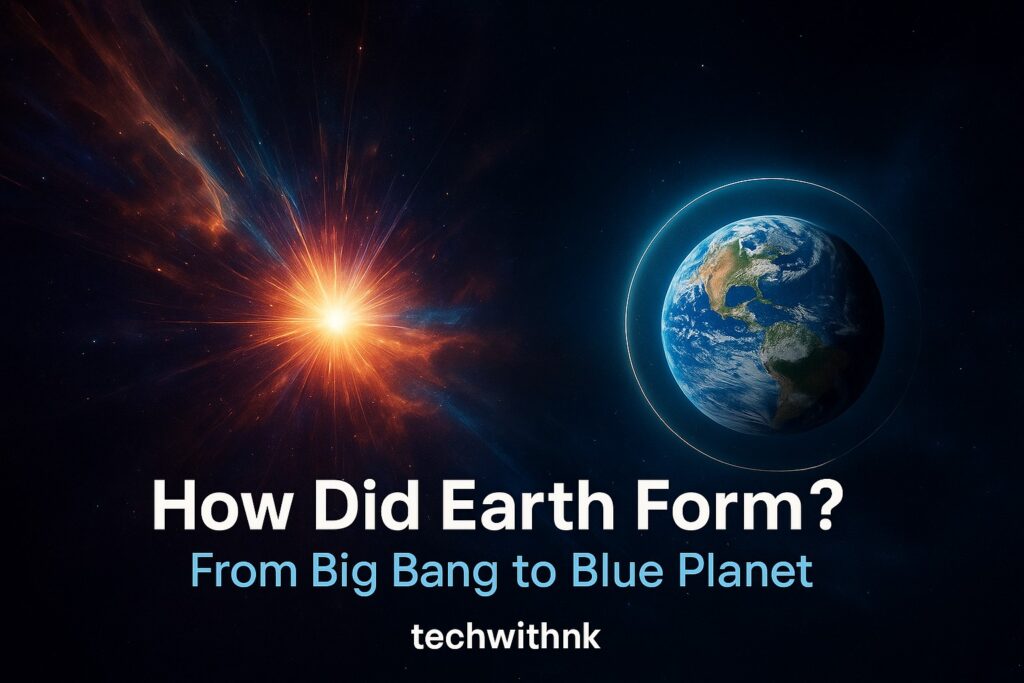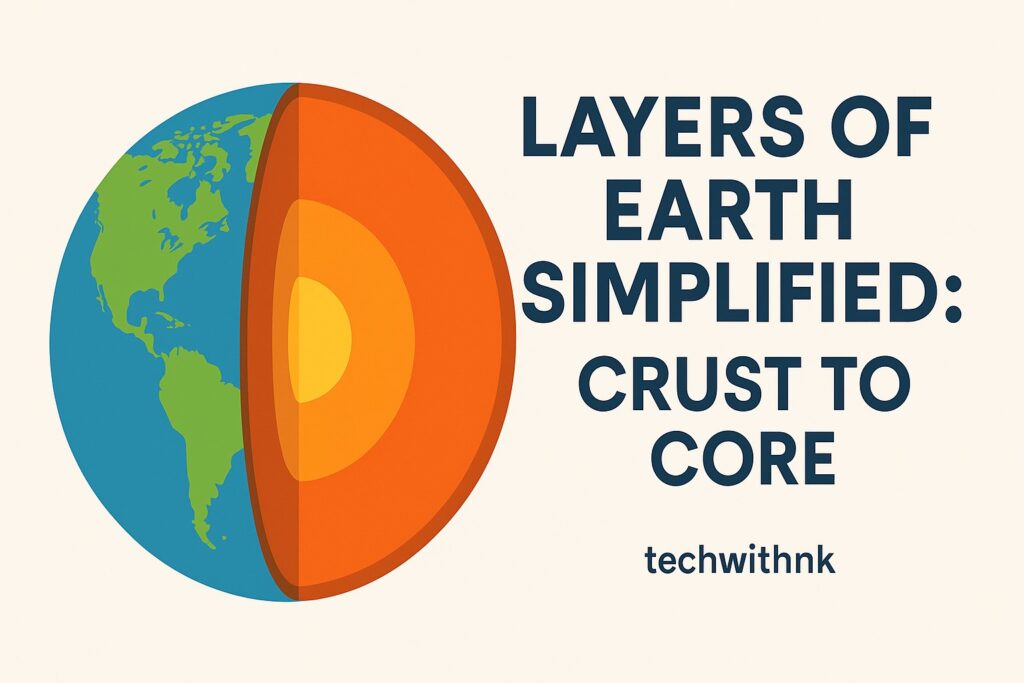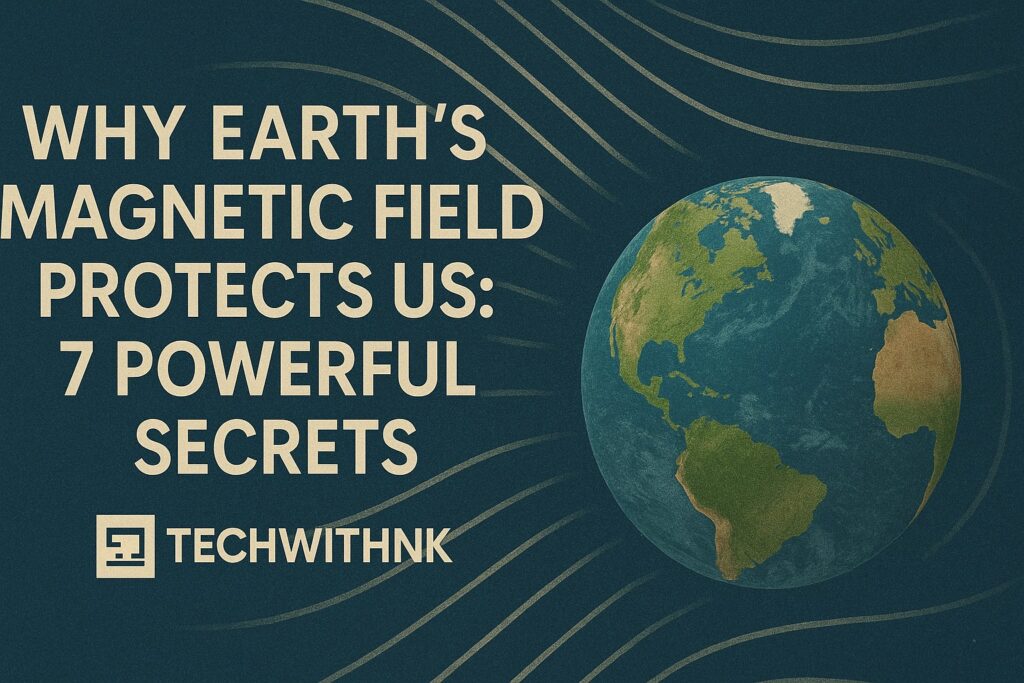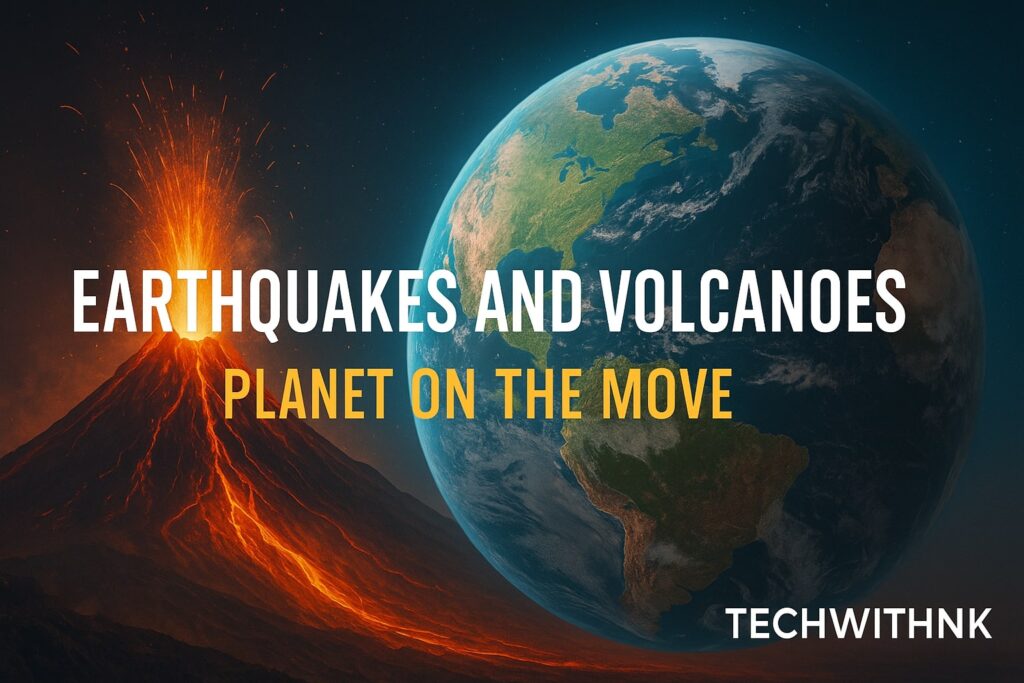Table of Contents
ToggleIntroduction
The story of how Earth formed is a tale billions of years in the making. Two massive cosmic events — the Big Bang and the Solar Nebula — played crucial roles in shaping the world we live on today. But what’s the difference between them, and which one truly gave birth to Earth? Let’s break down these concepts and understand how each event contributed to the origin of Earth.
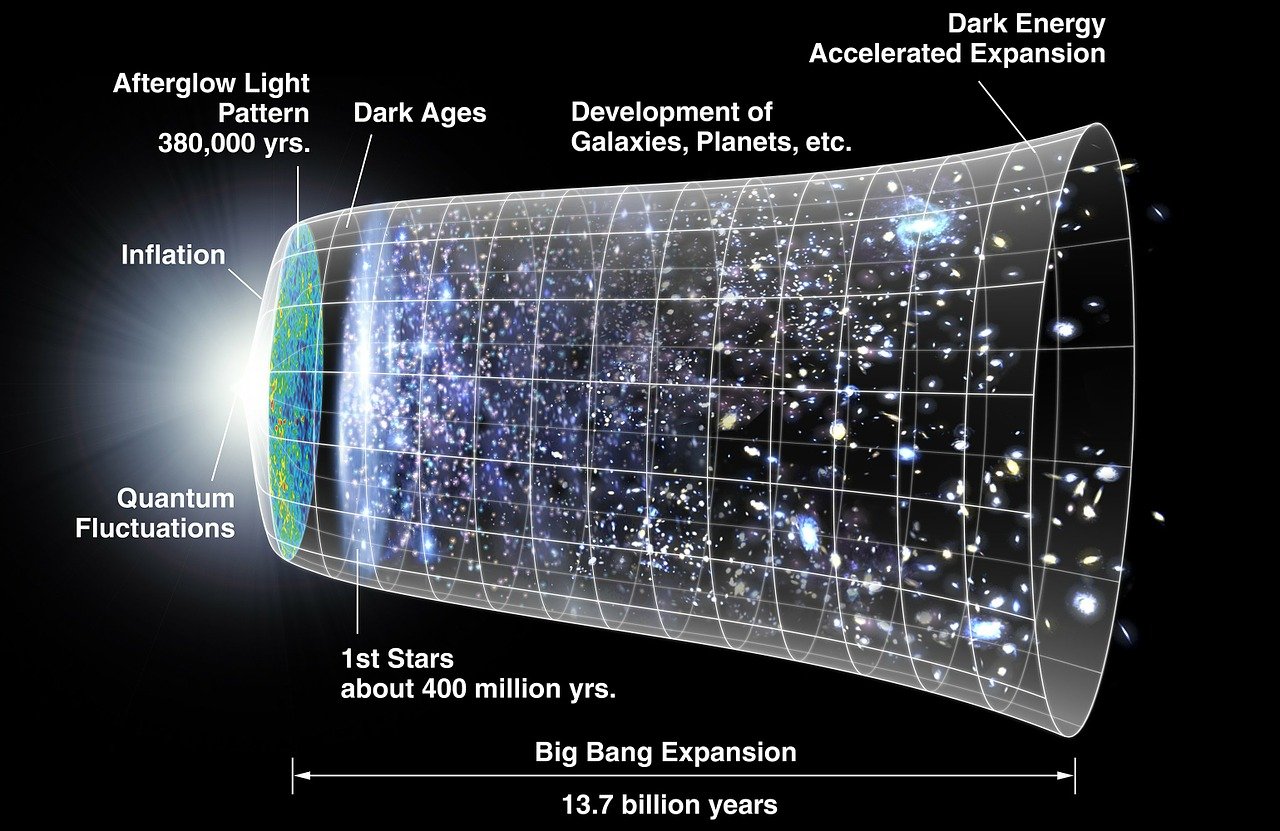
What Was the Big Bang?
The Big Bang is considered the birth of the entire universe, occurring about 13.8 billion years ago. It wasn’t an explosion in space, but rather an expansion of space itself from an incredibly hot, dense point. The Big Bang created the universe’s fundamental building blocks — energy, matter, and the physical laws we still observe today.
Key impacts of the Big Bang on Earth’s formation:
Created hydrogen and helium, the simplest elements
Set cosmic conditions for star and galaxy formation
Laid the groundwork for heavier elements to form in stars later
Without the Big Bang, there would be no matter at all — no planets, no stars, no Earth.
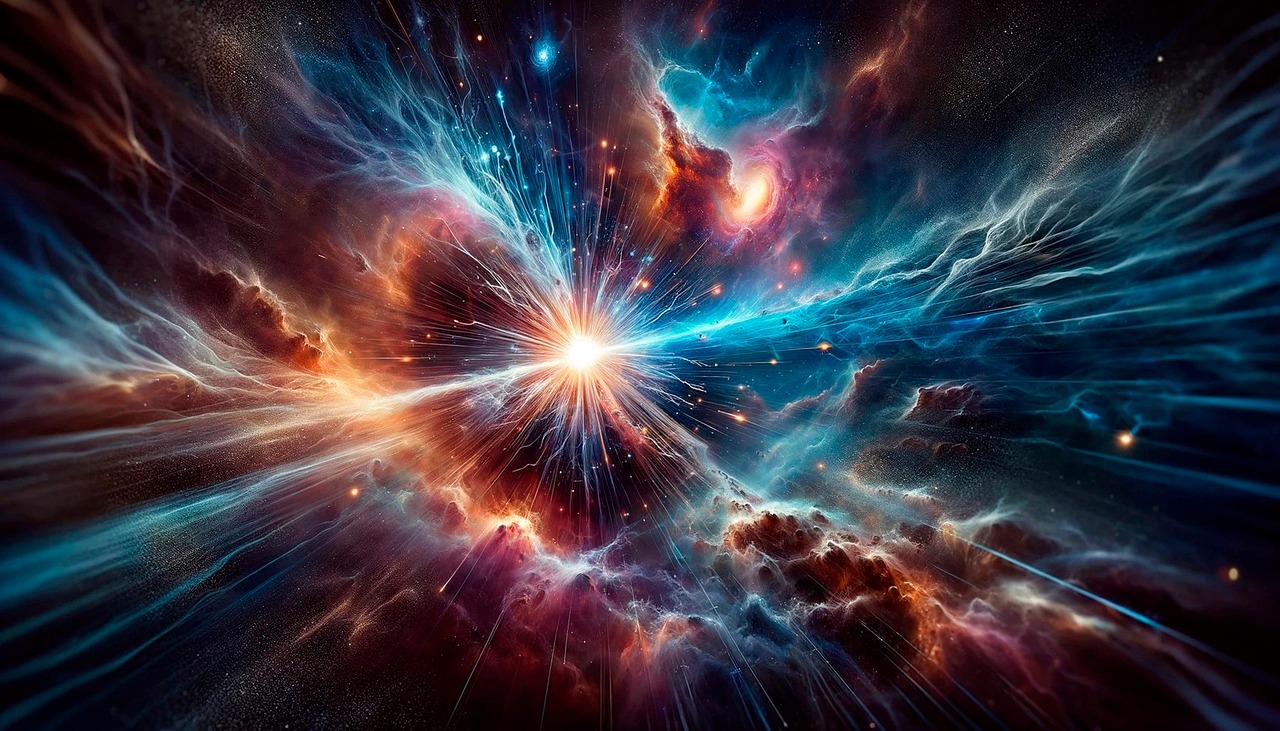
What Is the Solar Nebula Theory?
Fast-forward to about 4.6 billion years ago. Our Solar System — including Earth — formed from a solar nebula, a giant rotating cloud of gas and dust left over from earlier generations of stars.
This nebula collapsed under its own gravity, forming the Sun at its center. The leftover material flattened into a spinning disk, where tiny dust grains began to stick together and grow into larger rocky bodies called planetesimals. Eventually, these planetesimals collided and merged, forming protoplanets — including Earth.
Key impacts of the Solar Nebula on Earth’s formation:
Supplied the raw materials for Earth’s rocks, metals, and water
Set up the architecture of the Solar System
Created conditions for the Earth to eventually support life
In short, the Solar Nebula is directly responsible for the formation of Earth itself.
Which One Shaped Earth the Most?
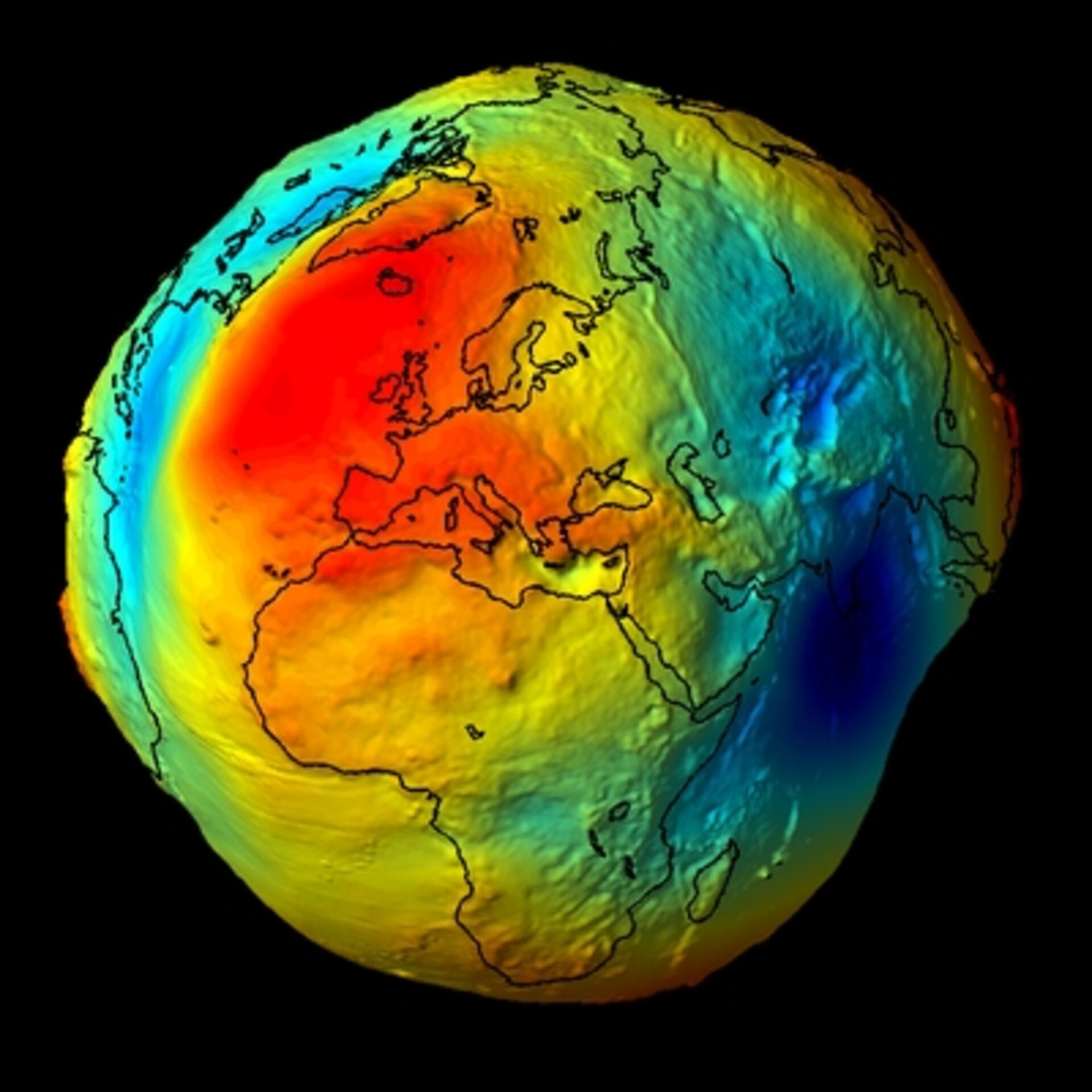
Both the Big Bang and the Solar Nebula were essential. The Big Bang provided the ingredients — hydrogen, helium, and the universe itself — while the Solar Nebula gathered and processed those ingredients into the Earth we know today.
It’s like baking a cake:
Big Bang: provides the flour, sugar, eggs
Solar Nebula: mixes, bakes, and shapes them into a cake
One could not have happened without the other. The Big Bang gave us the cosmic starting point, and the Solar Nebula assembled the building blocks into our planet.
CLIKE HERE TO KNOW ABOUT AI IN SPACE
Is the Big Bang responsible for creating Earth?
No — the Big Bang created the universe’s matter and energy, but Earth formed billions of years later in the Solar Nebula.
What is the Solar Nebula?
The Solar Nebula was a giant cloud of gas and dust that collapsed to form the Sun and the planets, including Earth, about 4.6 billion years ago.
Which came first, the Big Bang or the Solar Nebula?
The Big Bang came first, 13.8 billion years ago, while the Solar Nebula formed much later, around 4.6 billion years ago.










